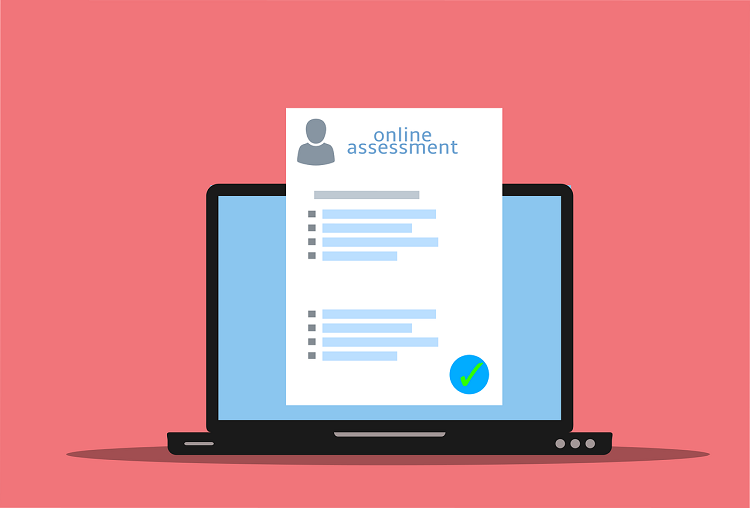
Mastering the Wonderlic SLE: Prep Tips, Format, and Scoring
Are you faced with taking the Wonderlic Scholastic Level Exam (SLE)? The Wonderlic SLE Test is important for passing academic programs or getting certain job roles. Because of this, it can understandably be daunting. However, with the right preparation, you will get passing scores for the Wonderlic Test.
Read on to learn all about the WSLE and how to prepare for it.
Table of Contents
What is the Wonderlic Scholastic Level Exam?
The Wonderlic Scholastic Level Exam is a cognitive ability test that assists academic institutions in their admissions process for their different programs. It is the equivalent of the Wonderlic Personnel Test (WPT) which is also used for pre-employment testing.
There are currently two versions of the Wonderlic Test. These are the following:
- Quicktest – This version of the test presents 30 questions that you need to answer within 8 minutes. You will likely take this online, early in the selection process. But, you may still need to take the Wonderlic SLE Exam later on in the admissions process.
- Wonderlic SLE full version – This version presents 50 questions that you need to answer in 12 minutes. This is also an online test. However, you may be expected to take it on the premises of the institute to which you are applying.
Who Uses the Wonderlic Test?
The standard Wonderlic Exam is the leading admission test for career colleges across the United States. The test aims to assess your cognitive ability, determining your ability to solve problems and follow instructions.
As such, this test is favored by institutions for their admissions process. For example, nursing colleges use this cognitive ability test to evaluate the suitability of candidates for their nursing programs.
Wonderlic SLE Practice Test
Several different question types are used on the Wonderlic SLE in order to assess cognitive ability.
These may include:
- Word comparisons
- Antonyms
- Dates and times
- Folding boxes
- Graphs
- Number comparisons
- Simple math
- Sentence forming
- Rotational series
- Syllogisms
All of these question types can be categorized under several broad headings, which are:
- Verbal
- Quantitative
- Abstract
- Logical Reasoning
These categories are further subdivided to contain the following question types as outlined above:
- Verbal reasoning – word comparisons, antonyms, sentence formation, syllogisms, and proverbs
- Abstract and spatial reasoning – folding boxes and rotational series
- Numerical reasoning – graphs, number comparisons, simple math, word problems, and number series
- General knowledge – dates, times, and popular science
Wonderlic Sample Questions
Take a look at the sample questions from a Wonderlic SLE practice test.
Word comparisons:
FACILITATE – IMPEDE
These words are:
a. Similar b. Contradictory c. Neither similar nor contradictory
Word math problem:
Anne is 5 years older than Greg. Greg is 15 years old. Sam is half Anne’s age. How old will Sam be when Greg is 40?
a. 45 b. 50 c. 40 d. 37 e. 35
What is the Format of the WSLE?
The Wonderlic Scholastic Level Exam is not divided into separate sections or topic areas. But instead, all of the question types are mixed together randomly. However, the questions are organized in order of difficulty, meaning that the questions will get harder as you go through the test.
Because of the nature of the test — multiple quick-fire questions in a very limited time frame — you are unlikely to complete all of the questions during the session.
Therefore, it is advisable to skip questions that you find very challenging. Answer the easiest ones first and come back to the others if you have time. This way, you don’t lose points and increase your chances of getting a good score.
You are allowed to use scratch paper to solve math problems. However, you cannot use a calculator to answer math questions.
What is the Passing Score on the Wonderlic Scholastic Level Exam?
Typically, the WSLE will be used if the GPA of a student is below a certain threshold like a 2.5 or a 2.4. But, the Wonderlic SLE test can simply be administered as part of an institution’s general admissions process.
The passing scores will depend wholly on the institution’s criteria. It is a good idea to find out what the passing score for the educational programs you are eyeing before you take the Wonderlic SLE test.
Every question is worth one point in itself. Since you will not be penalized for any incorrect answers, it is well worth taking a guess at any answers that you are not totally sure about. An educated guess can yield a correct answer.
Regardless of how many questions you completed, your scores will only depend on the number of correct answers you got.
Typically the passing scores range from 16 to 20 out of 50 questions. If you take the quick SLE test, which has 30 questions, your score will still be out of 50 as each question in this test is actually worth 1.66 points. If you get a score below 10, this will indicate illiteracy. On the other hand, a score above 10 means you are literate.
Wonderlic Test Prep
Tests such as the WSLE can seem particularly daunting, especially when there is such a tight time limit. Answering questions under pressure can cause the test taker additional stress, which can result in careless mistakes. Additionally, some may even take too much time answering questions, that they won’t finish the test.
The best way to remedy this is by using practice tests. Free practice tests are available online. You can also try a comprehensive study guide that includes practice questions such as those by TestPrep-Online. These can really make a difference to your chances of success. Here are some ways in which you can prepare for your Wonderlic SLE Exam.
Evaluate Your Studying Process
Once you have completed a free practice test, such as those provided by TestPrep-Online, you will have a much better idea of the areas that you found to be the most challenging. In this way, you will be able to prioritize those topics which you will need more time to cover and those which you found easy and that need little or additional study time.
Adjust Your Study Timetable
There have been many studies conducted that have produced results regarding a student’s ‘best’ study times. It is argued that our brains are most alert in the first half of the day as opposed to the afternoon or evening.
Therefore, it is advisable to study those topics which present challenges or difficulties before the afternoon. However, it should also be noted that every individual’s body clock is unique. You should choose a time that suits both your learning style and life commitments.
Take Frequent Breaks
Just as an athlete will allow the body to recover after exertion, so should we allow our brain to recharge after periods of intense concentration. When our brain is tired or overloaded, it stands to reason that we are not able to absorb or process as much information as when we are fresh and well-rested.
Taking frequent short breaks in between topics will allow you to focus on each new task with the same energy and motivation as the first.
Nutrition and Hydration
Staying hydrated and well-nourished will help you to stay alert and focused. Eat healthy snacks such as fruits and nuts.
Sugary treats may give an instant buzz, but they are ‘empty calories’, and the burst of energy that they may bring will pass quickly. It is also essential to drink plenty of water and avoid caffeinated or sugary drinks for similar reasons as sweet treats.
Keep Moving
Your physical health will also play a crucial role in your ability to process information. Taking regular physical breaks such as a short walk while taking in fresh air will really help to improve your concentration and focus overall.
Plan Your Study Area
Choose a quiet, uncluttered area, preferably by a window so that you have some natural light and fresh air. You should be comfortable and undisturbed for the best possible studying conditions.
Having said that, sometimes a change of scenery can be a great way to kick-start the brain, especially for challenging topics. Try studying in a library or a quiet cafe to prevent lethargy during your studying period.
Finally, the single best way to make sure that you give yourself the very best chance of success, is to practice, practice, and practice a bit more! The practice tests from TestPrep-Online are a great way to ensure that you are well-prepared for your test on the day.
Of course, the practice tests will not give you the exact questions, but they will give you an idea of the format and presentation of the questions. Each practice test will incorporate the same categories and subcategories of questions under the headings that we discussed earlier in this article and therefore, practicing the same range of questions under these headings will greatly improve your confidence and your ability to answer accurately and efficiently.
Nerves can do funny things to the brain, so it stands to reason that the less anxious you feel, the better you are likely to perform on the day.
Practicing under timed conditions will also enable you to understand the amount of time you have for each question – about 14 seconds – and what this will feel like under exam conditions.
If you have managed to find out the required pass mark for your chosen institution as suggested and you have been able to achieve at least that mark or higher during your practice tests, then you will be able to approach the real test with much more well-placed confidence.
About the Wonderlic Tests
The Wonderlic tests are assessments designed to measure general cognitive ability in the fields of math, vocabulary, and reasoning. Its overall aim is to screen job candidates in the shortest possible time.
The original Wonderlic test was created in 1936 by Eldon F. Wonderlic and began as the Wonderlic Personnel Test. It was originally designed like other IQ tests with the test time limit being just 12 minutes. Only 2-5% of average groups were able to complete the test within the allotted time frame.
Whilst the test is continually being updated with the repeated evaluation of its questions, it remains true to its original purpose. The test has been widely used to select pilots during WWII, for the National Football League, and for a whole range of additional occupations. Originally, the test was provided for free as the data collected was so useful to Wonderlic for research purposes.
The tests are now divided into three different sections:
- Cognitive ability
- Personality
- Motivation
Next Steps
The purpose of the WSLE is to ascertain whether or not a potential candidate has the cognitive ability to qualify for a specific program. But it can also be a valuable indication of whether that candidate will be able to perform well academically within that program moving forward.
TestPrep-Online is committed to providing the very best resources to make sure that you are well-prepared and ready to ace your test and move forward with your chosen career!
Written by Karen Stanley
Karen is a former teacher of 20 years and ten times published author. She writes content for educational organisations and businesses, nationally and internationally. She coaches new and budding writers through to publication and is passionate about creativity; she runs creative writing workshops in schools and fostering agencies.
Read also:
Sarah is an accomplished educator, researcher and author in the field of testing and assessment. She has worked with various educational institutions and organisations to develop innovative evaluation methods and enhance student learning. Sarah has published numerous articles and books on assessment and learning. Her passion for promoting equity and fairness in the education system fuels her commitment to sharing insights and best practices with educators and policymakers around the world.











